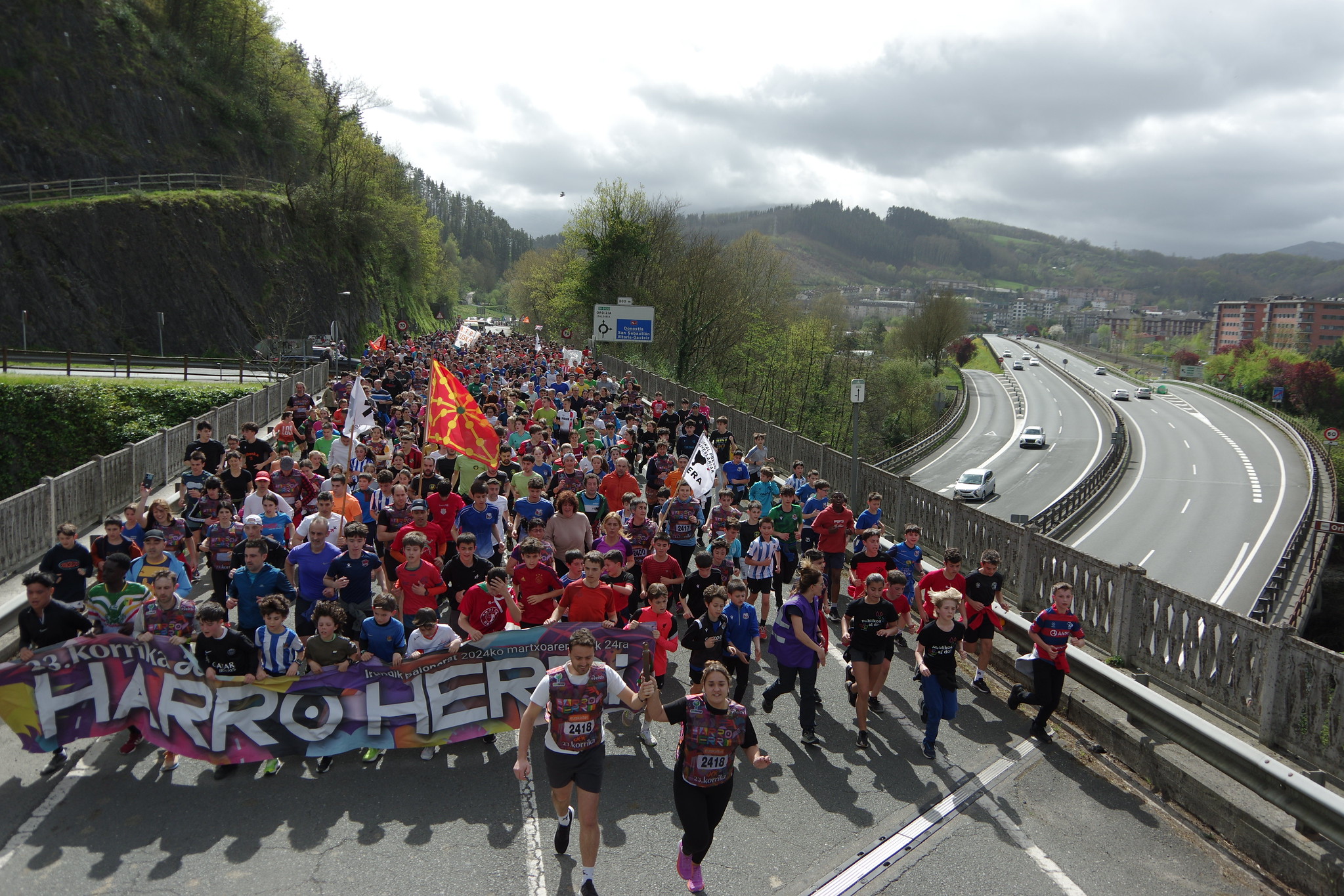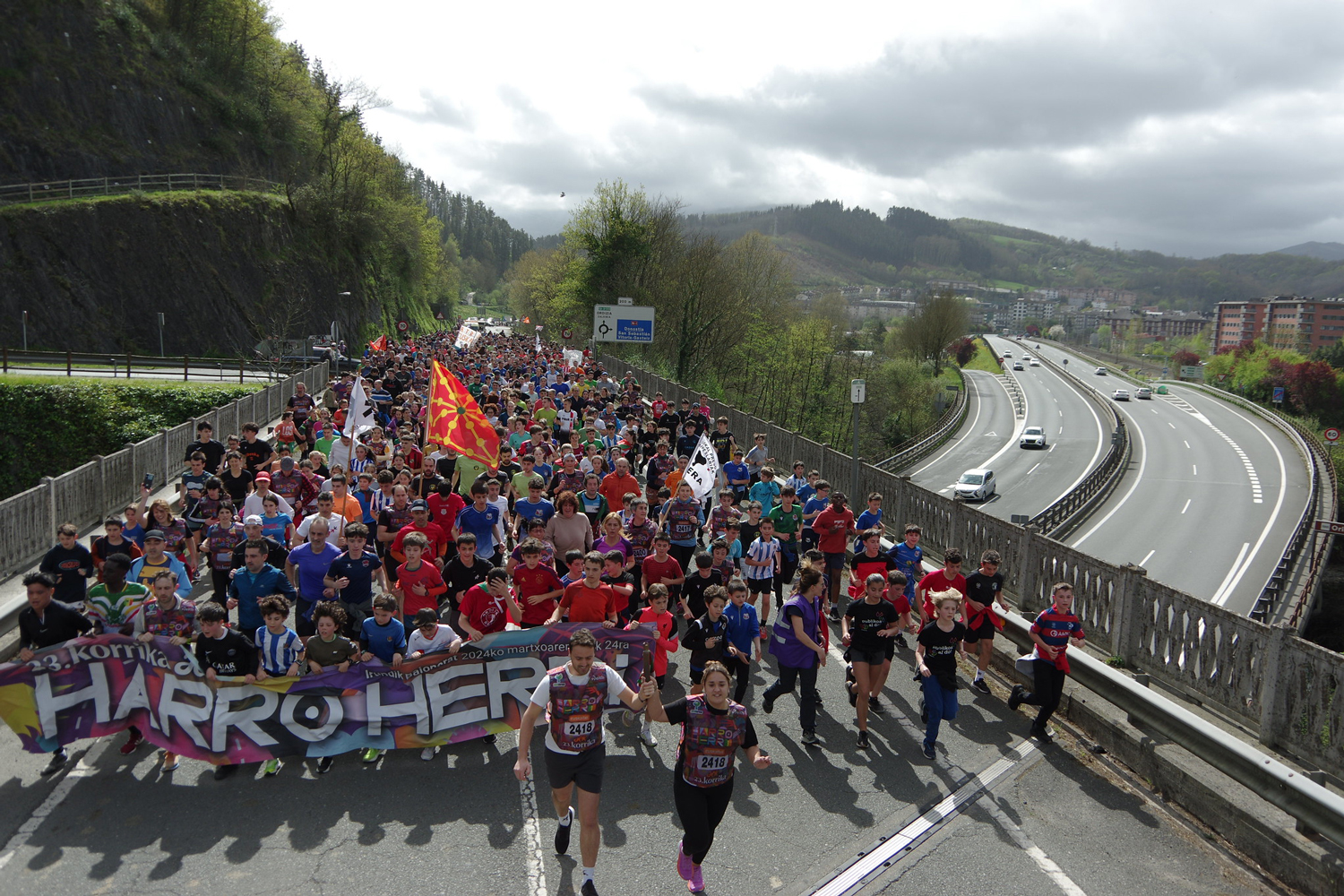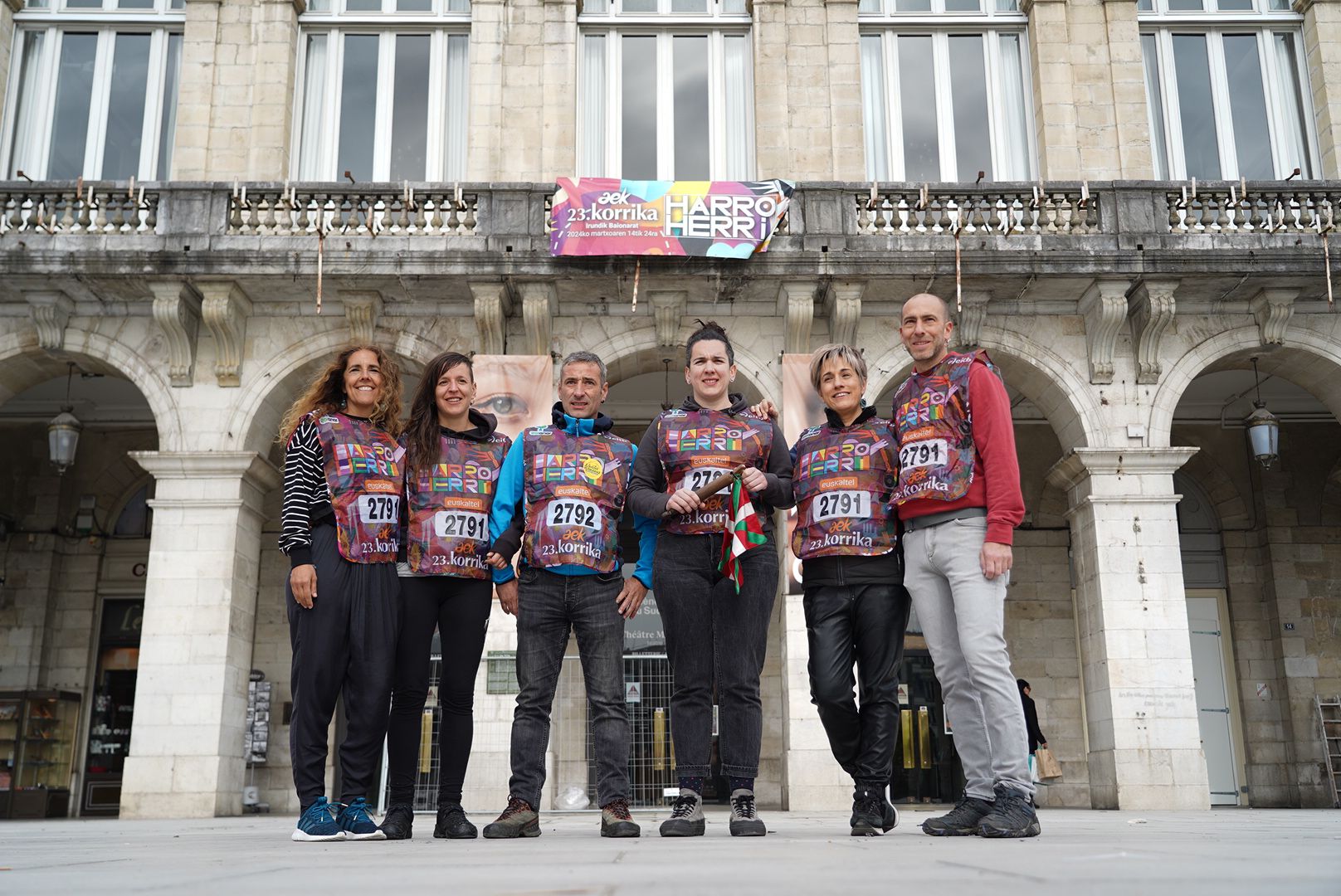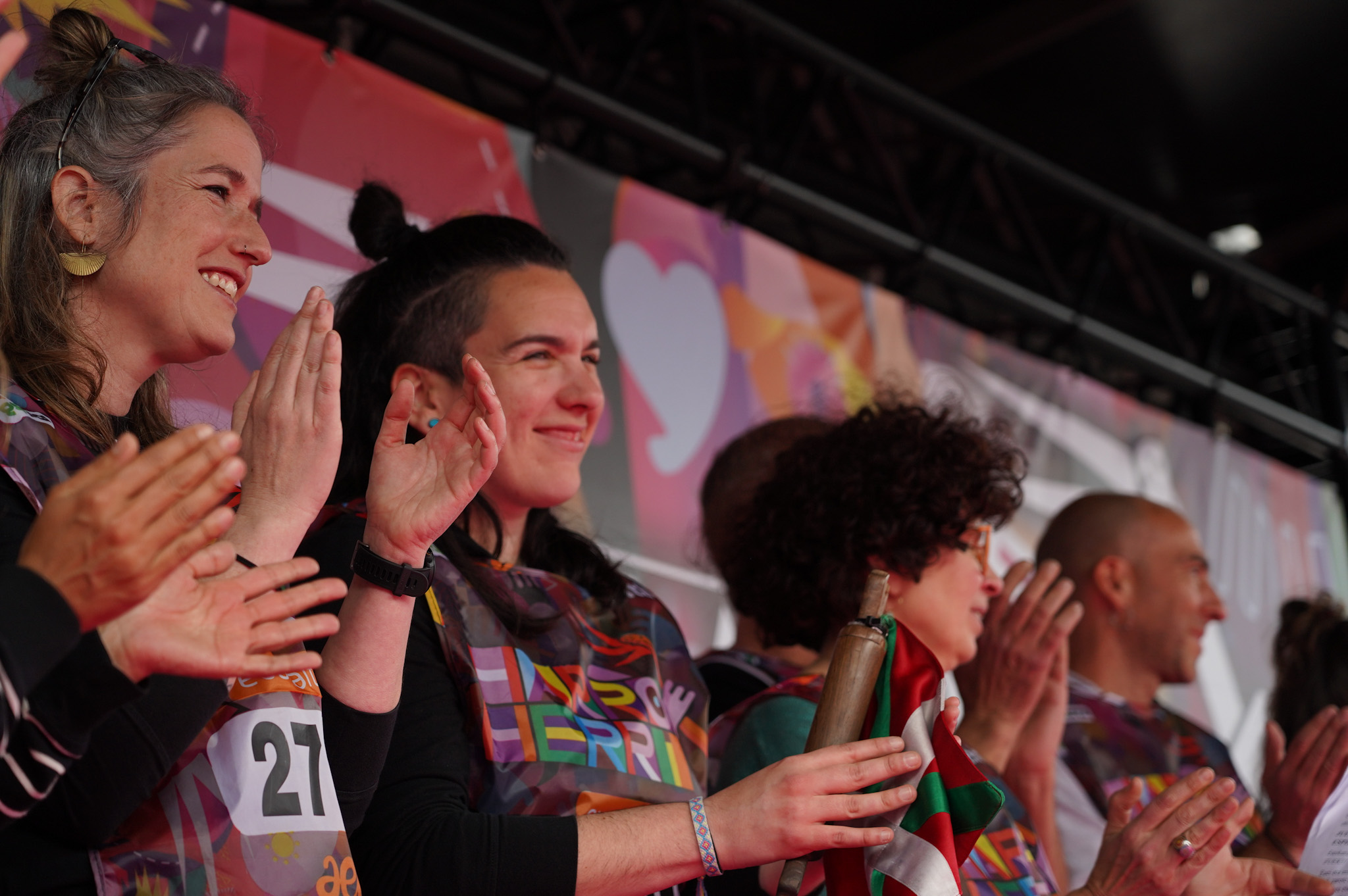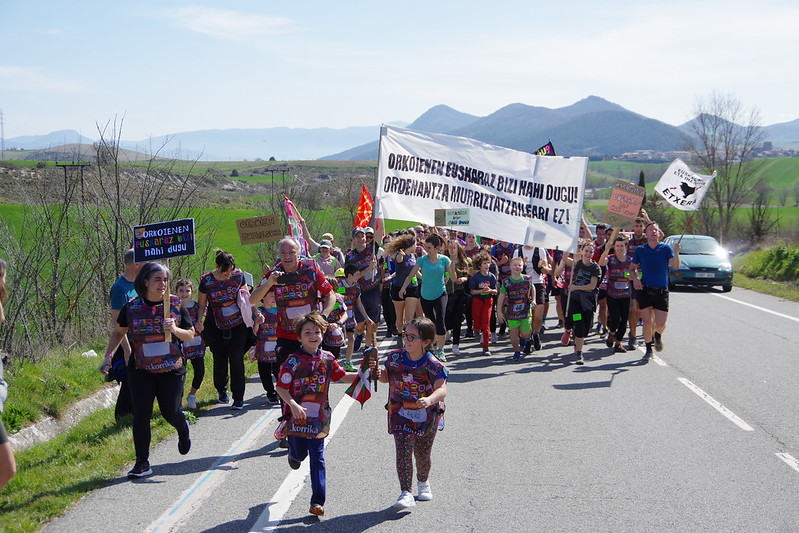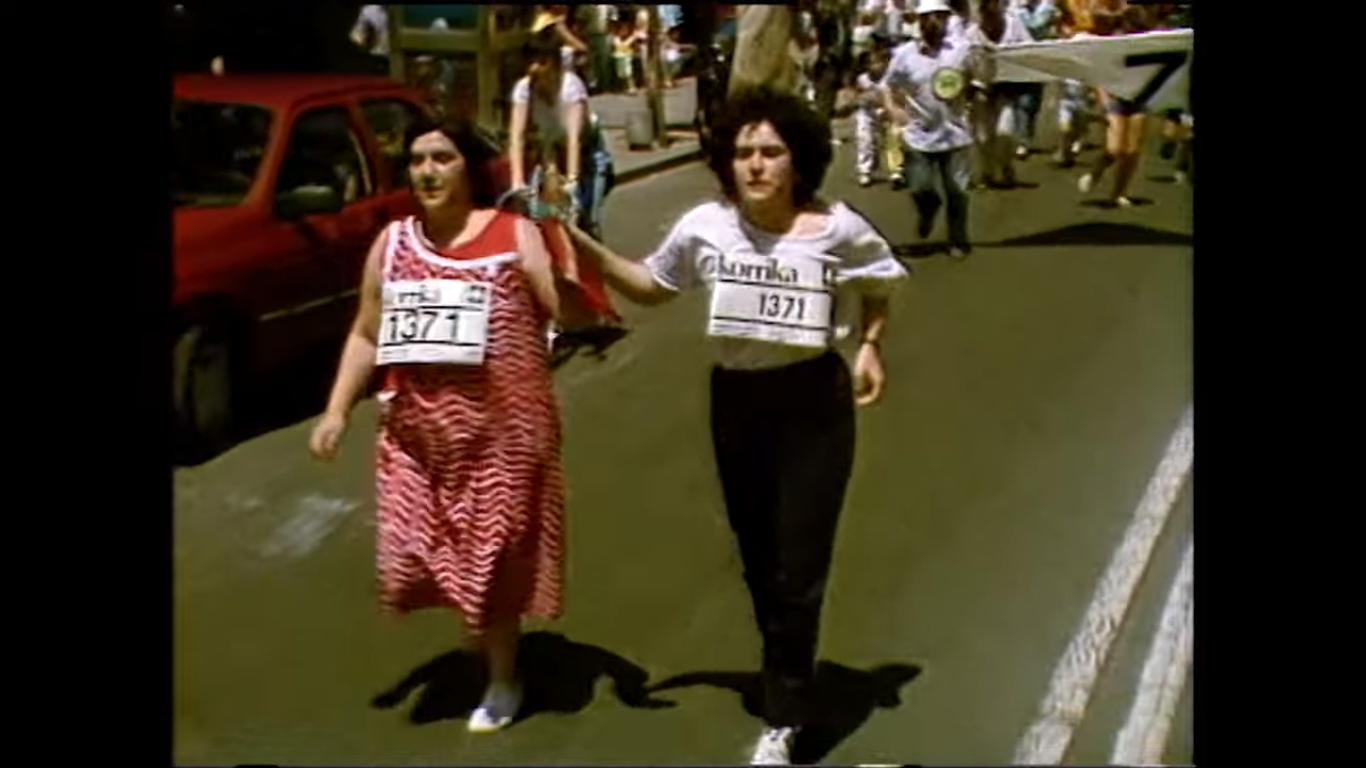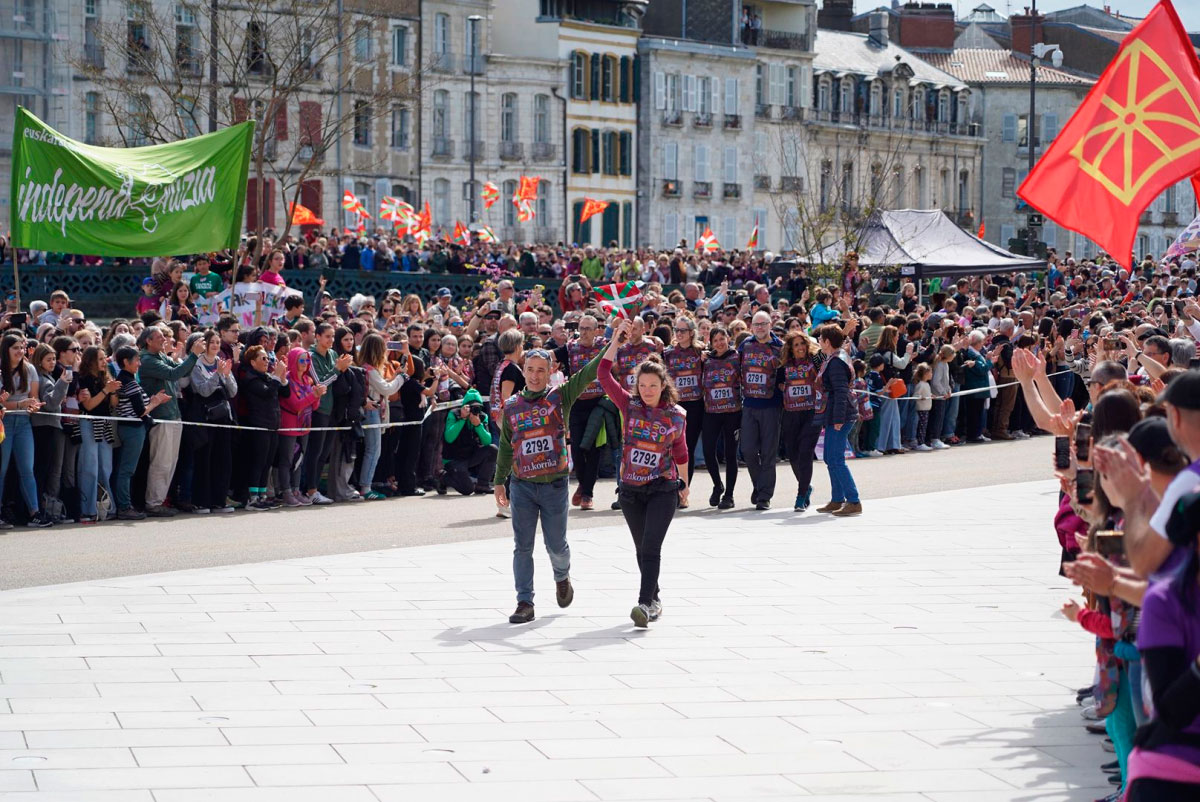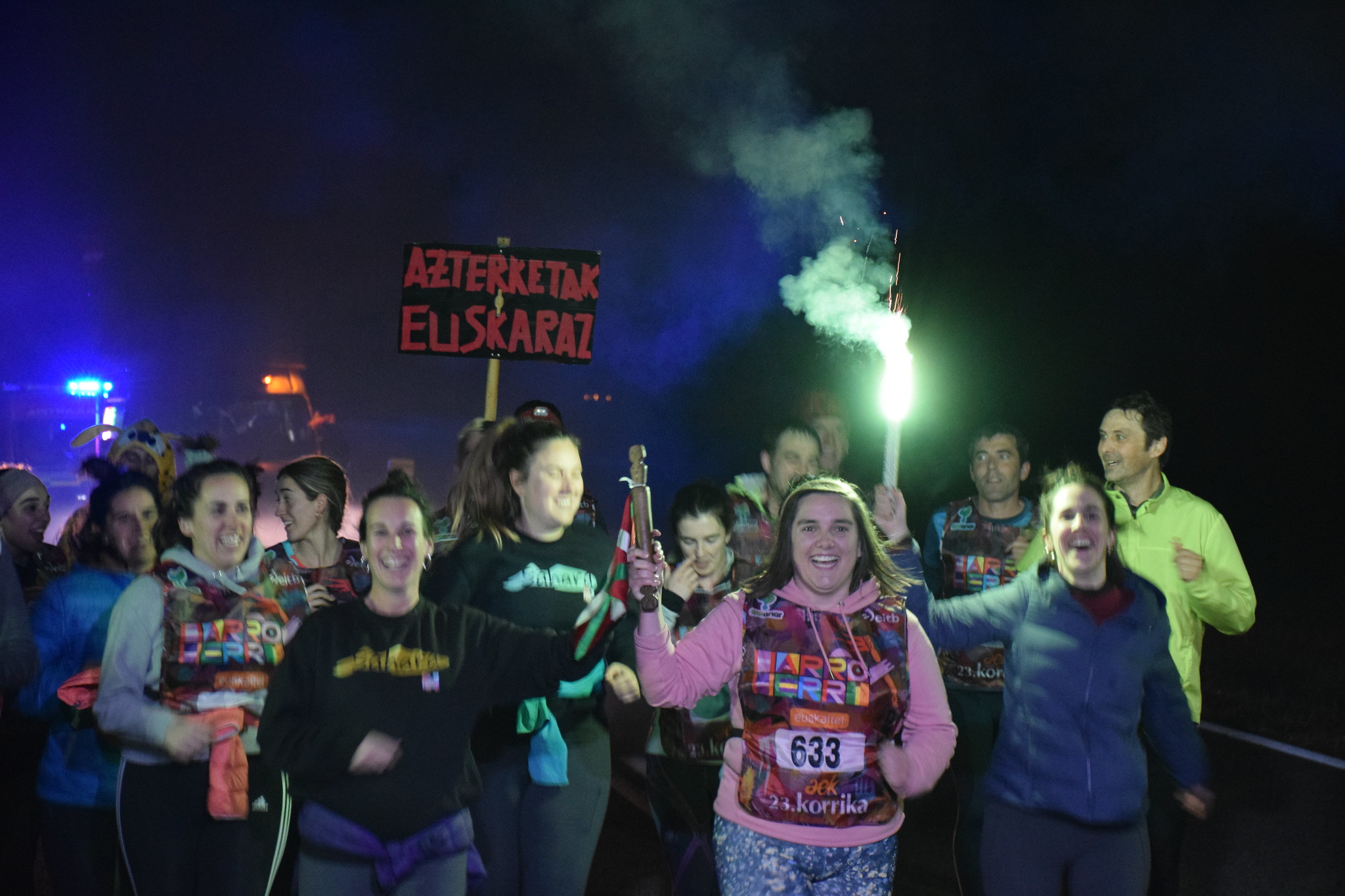Brebeta in Basque: There's no penalty for professors.
- The position of SEASKA teachers, students and parents is firm: they want the Break and Break tests to be carried out in full in Basque and will continue until that goal is achieved. Elorri Falxa is a professor of Lartzabal, at Manex Erdozaintzi Etxart College, and last year he resigned the official responsibility of correcting the tests to denounce the "injustice" of forcing students to make the French Breviet, has been sanctioned by the French Ministry of Education. However, he has told us about the motivation they have to keep fighting.

More and more students from SEASKA mother's schools, schools and lyceums, a sign that Ipar Euskal Herria continues to Euskaldunify. However, there are more and more obstacles to their studies in Euskera. In 2016, reforms were carried out in the Brebeta exam, the official test that students must perform in the third year of the school. In mathematics and geographic history tests, the French Ministry of Education added science, and now, unlike the other two, SEASKA students are obliged to do so in French.
In the face of this, gigantic mobilizations have been made, and students, teachers and parents have also been directed to the rectorate of Bordeaux to demand that this “injustice” be changed and have taken advantage of the Korrika to make the same claim: "Basque Brebeta".
“What do we want? Brebeta in Basque!” @seaskaikastola students hear their claim on #Korrika 22 @AEK_eus @eitbNews pic.twitter.com/qB3zB5d5pf
— Iurre Bidegain (@Iurrebidegain) April 4, 2022
In addition to the demonstrations, many other actions have also been carried out, as the position of the Ministry in the strict sense cannot be answered in words. They have decided to disobey: the students have held the test firmly in Euskera, and in 2021 the group of professors warned that they relinquished the official responsibility of directing the beta. Four of those who were called to run the works were rejected, including the Bavarian Elorri Falxa: “Our goal is clear and we will continue to do so,” he said.
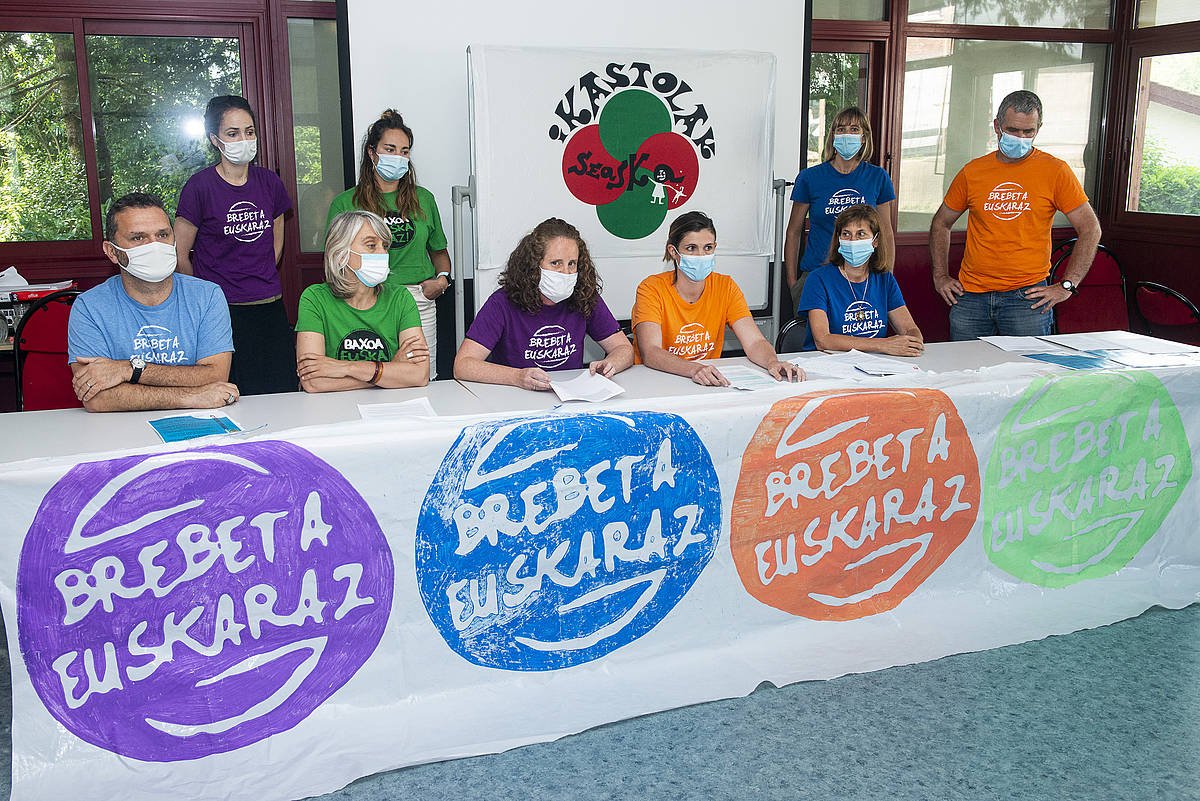
The Falxa serves as a professor at the Manex Erdozaintzi Etxart School in Lartzabal since 2013, and it is clear that it will not be frightened or with the sanctions of the Ministry of Education. In January a letter was sent to the three SEASKA professors who refused, in which they warned them that they would take away part of their salary for not correcting the tests, as if they had made a day of strike. They are not alarmed at all: “We are quite motivated. In addition, we have great support, because we have Seaska behind us, and the elect from the surrounding area are also with us. The truth is that they have not put too much pressure on us and have not made us change our minds.”
What they want to change is not their ideas, but those of the French Government. Falxa resorted to the fine and, in his letter to the rector, specifically denounced the reasons why he opposed the correction of the examinations: “We have insisted that we disagreed with the decision and we have reexplained to him why we refused. We explained to him that the solution was in his hands.” They do not accept the explanation, and at the end of March another letter was sent to him confirming that part of his salary will be taken away, and they reply that this excuse is not valid.
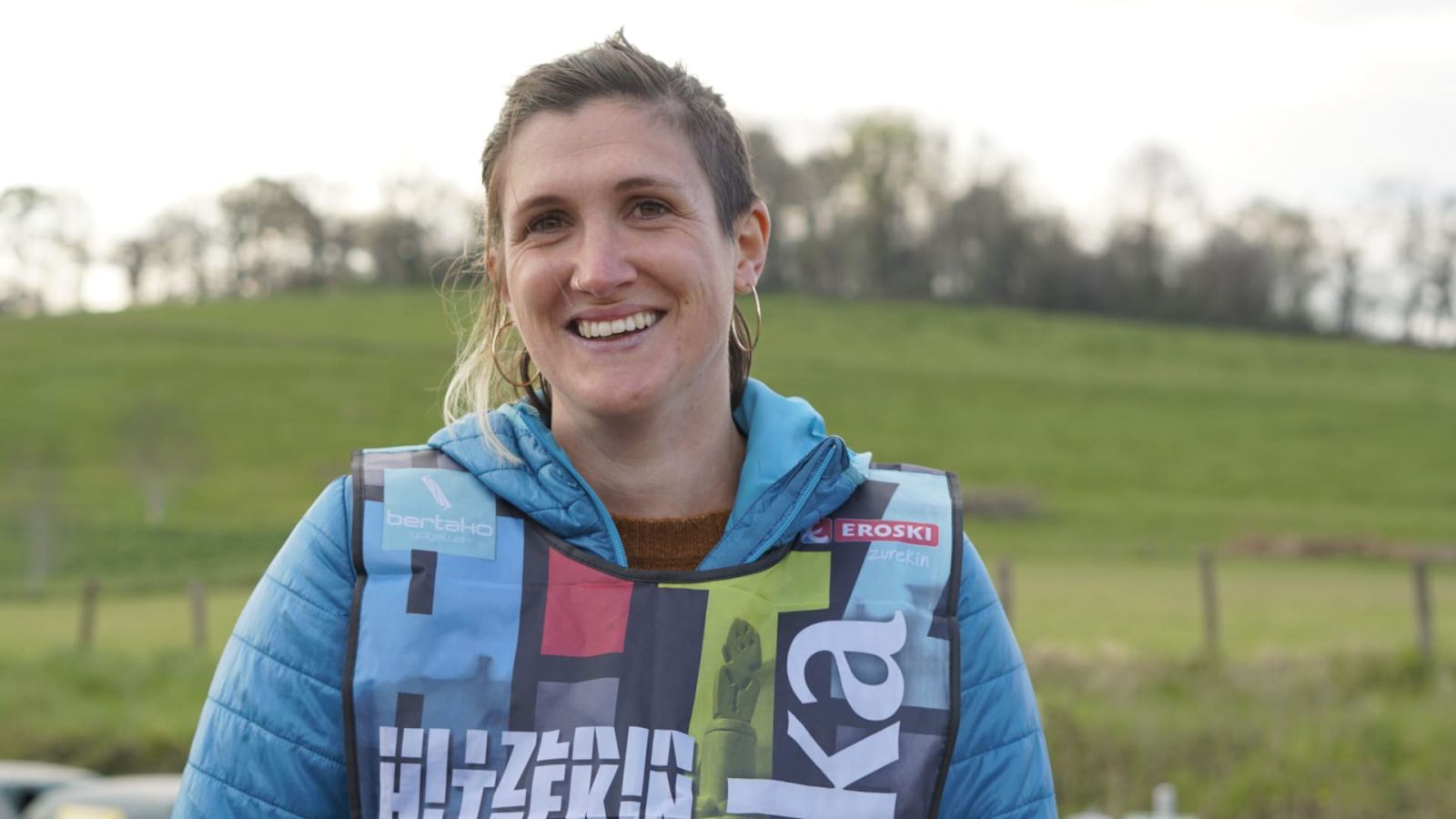
Students disturbed
In the 1990s there were also strong demonstrations in Ipar Euskal Herria to demand that the tests be done in Euskera. And they did. Since 1994, mathematics and geographic history studies have been conducted and directed in Basque. The students of the 3rd year college were not able to obtain the diploma, as the exam was conducted in Basque, in their language. Currently, students do not have to worry about it, as a small part of the note is replaced by the science test: “They know they’re going to have a bad note in the science exam, but they’re agitated, though, because they don’t deserve it.” La Falxa knows that the grade does not show the level they have and understands the indignation of the students.
Students are not standing and seek support in the environment, organizing various activities. “They are very involved and motivated in the struggle.” SEASKA members have moved from words to deeds. They have gone from agitation to separation, by the Basque people, and by being able to learn in our language. There is no one who stops them, no punishment, no bad note: “We think it’s possible. There have been right-wing and left-wing actions, and they will still be.”

Korrikaren "bihotza eta burua" erakutsiko ditu dokumentalak. Proiektua gauzatzeko, herritarren babesa "ezinbestekoa" izango dela adierazi dute AEK eta Mirokutana ekoiztetxeak, eta apirilaren 25era bitartean crowdfunding kanpaina bat abiatuko dute jalgihadi.eus... [+]
We Basques move our feet behind the witness of Korrika to proclaim that we want to survive as a Basque people in favor of our language, with the aim of the Basque Country we desire.
The tipi-tapa is the first step taken by a migrant person who leaves his homeland in Africa,... [+]
Not more than a year living in Vitoria when I first saw Korrika. It was daylight, I was carrying my daughter in a backpack, and a bunch of speakers around me, and among those friends, Rosa, who is still beside me. About her daughter, what to say, is almost 14 years old, and in... [+]
For eleven days, from 14 to 24 March, the corners of Euskal Herria will run 23 March. Running. Photographs sent by AEK are being collected in this gallery.








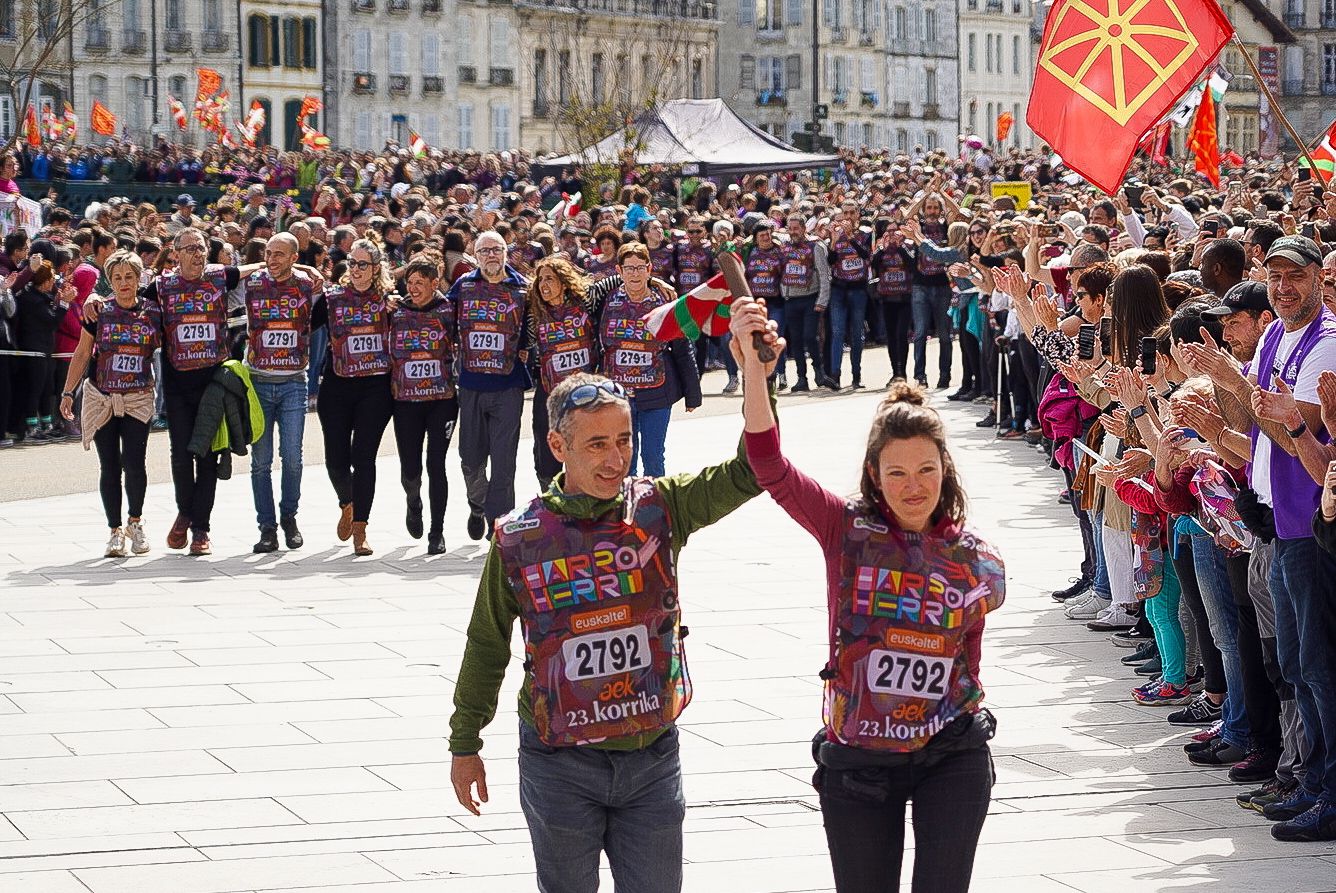
.jpg)


